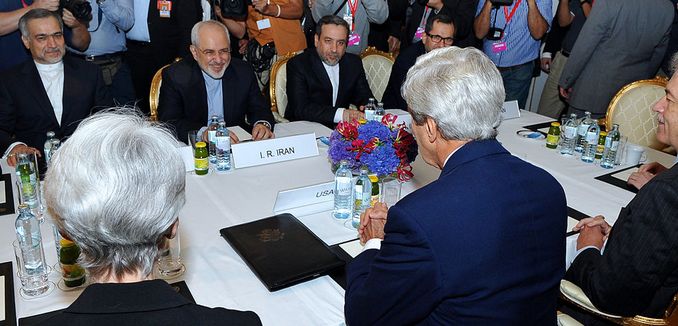An analysis published on the Foreign Policy Initiative website yesterday by Thomas C. Moore, a former staffer on the Senate Foreign Relations Committee, proposed three ways that the outgoing Congress could influence the outcome of a nuclear deal with Iran. While acknowledging that “Congress has no immediate tools available to block a deal with Tehran or prevent further sanctions relief,” Moore described the three initiatives.
The first would be for Congress to set parameters for a good deal. Right now, President Barack Obama can temporarily suspend sanctions. Congress could tighten the law to limit such suspensions “to a certification by the President that negotiations with Iran have a meaningful prospect of producing a deal that satisfies a specific set of minimum requirements.” Moore writes that such a law could also limit the duration of presidential waivers.
A second option would be for Congress to pass a law forcing a review of any deal by the relevant legislative committees. While there is already a law requiring a review of nuclear cooperation deals, such reviews can only take place when Congress is in session, and so the “purpose of this counting method is simply to ensure that no deal avoids scrutiny if it happens to arrive during a recess.”
Finally, Moore suggests strengthening the sanctions regime by passing legislation limiting nuclear cooperation with Russia and China if they continue undermining the economic sanctions imposed on Iran. Moore writes that such legislation “would allow better oversight as to sequencing and harmonization of international sanctions relief for Iran with U.S. law, in particular, insight into how far ahead or behind in harmonization with U.S. sanctions relief other nations are or plan to be.”
In recent weeks, there have been a growing number of calls from both parties in both houses of Congress for stronger legislative oversight over any potential nuclear deal with Iran.
[Photo: U. S. Department of State / WikiCommons ]




